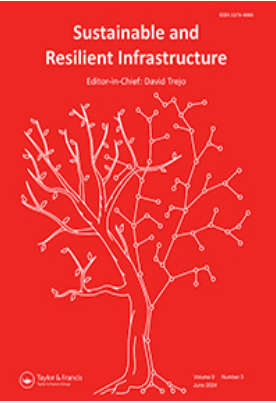是好是坏:冲突驱动的权力下放对中东城市供水基础设施复原力的影响
IF 2.7
Q2 ENGINEERING, CIVIL
引用次数: 0
摘要
本文章由计算机程序翻译,如有差异,请以英文原文为准。
For better or worse: the influence of conflict-driven decentralization on the resilience of urban water supply infrastructure in the Middle East
求助全文
通过发布文献求助,成功后即可免费获取论文全文。
去求助
来源期刊

Sustainable and Resilient Infrastructure
ENGINEERING, CIVIL-
CiteScore
7.60
自引率
10.20%
发文量
34
期刊介绍:
Sustainable and Resilient Infrastructure is an interdisciplinary journal that focuses on the sustainable development of resilient communities.
Sustainability is defined in relation to the ability of infrastructure to address the needs of the present without sacrificing the ability of future generations to meet their needs. Resilience is considered in relation to both natural hazards (like earthquakes, tsunami, hurricanes, cyclones, tornado, flooding and drought) and anthropogenic hazards (like human errors and malevolent attacks.) Resilience is taken to depend both on the performance of the built and modified natural environment and on the contextual characteristics of social, economic and political institutions. Sustainability and resilience are considered both for physical and non-physical infrastructure.
 求助内容:
求助内容: 应助结果提醒方式:
应助结果提醒方式:


